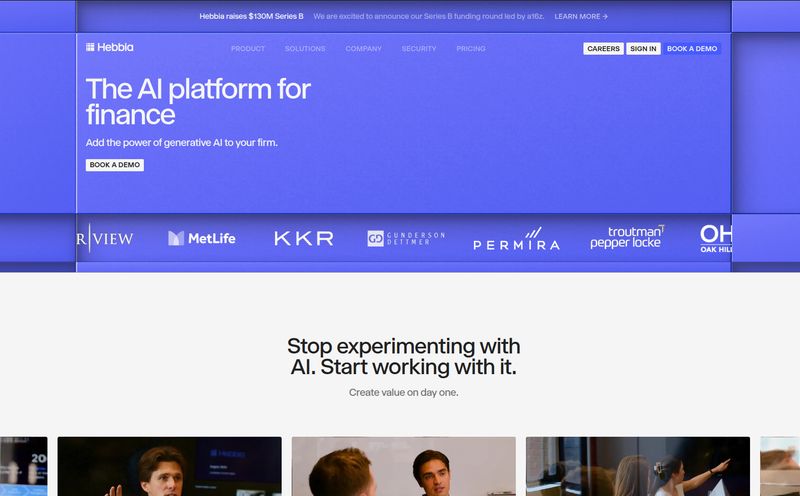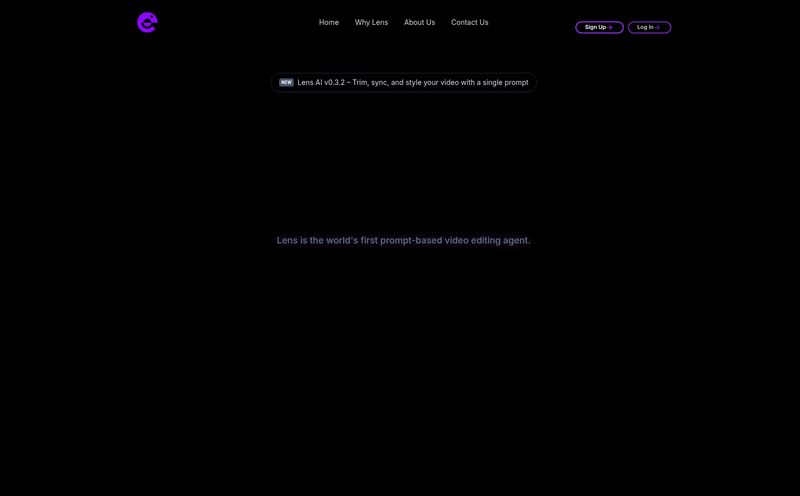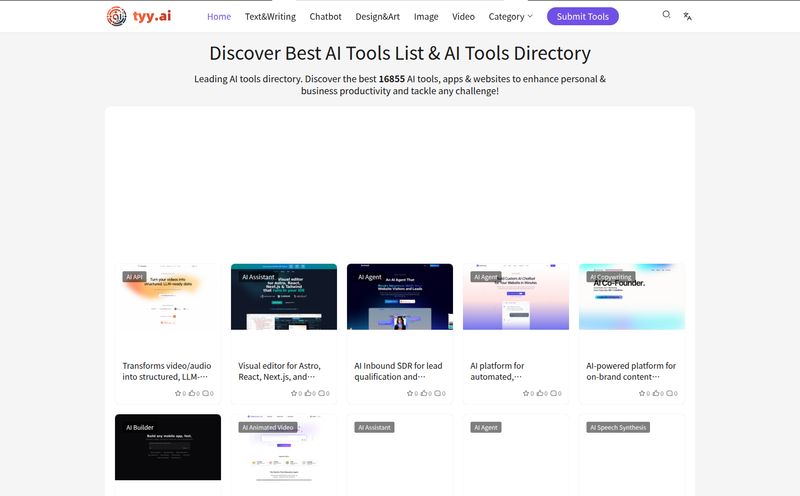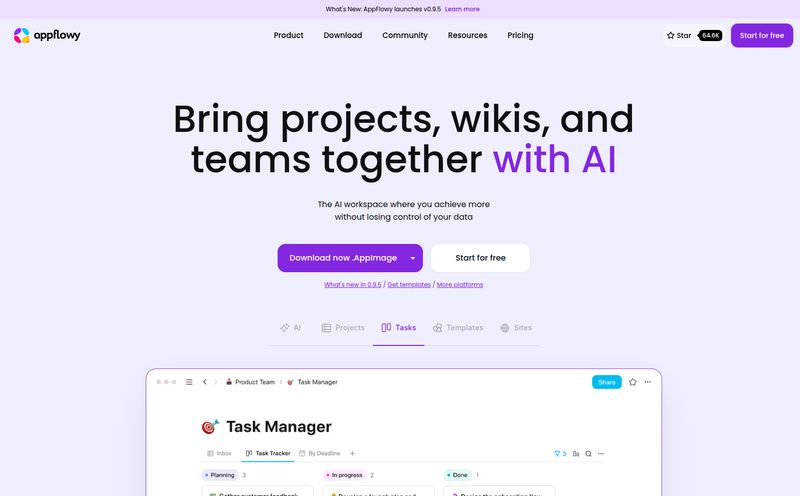If you're an entrepreneur, you're probably wearing about seventeen different hats at any given time. You're the CEO, the marketing department, the head of sales, and—most terrifyingly—the bookkeeper. For years, I've seen countless brilliant founders get bogged down by the numbers. It’s not that they can’t do it; it's that their time is so much better spent on, you know, actually growing the business.
The financial side of a business can feel like trying to navigate a thick fog. You know there are cliffs and pitfalls out there, but you can't quite see them until you're right on the edge. This is where tools and services have been trying to step in for years. I’ve seen them all, from clunky desktop software to slick apps that promise the world but deliver a spreadsheet. So when I heard about Harriet, a platform promising “simplified business finances,” my curiosity was definitely piqued. Another one? But this one seemed a bit different. They lead with “flat-fee bookkeeping,” and that always gets my attention.
So, I rolled up my sleeves and did a deep dive. Is Harriet just another shiny object, or is it a genuinely useful tool for the time-strapped entrepreneur? Let’s get into it.
So, What Exactly Is Harriet?
First off, Harriet isn’t just another piece of software you subscribe to and are then left to your own devices. And it's not a traditional, stuffy accounting firm either. It sits in this really interesting middle ground. Think of it as a hybrid: a slick, modern financial dashboard powered by a real, human bookkeeper. Their whole pitch is geared towards taking the guesswork and the grunt work out of your finances.
The idea is to give you a single place—a financial command center, if you will—where you can get a crystal-clear picture of your business's health. No more cross-referencing three different spreadsheets and your bank statement just to figure out your monthly profit. It's designed to give you back your time and, frankly, your sanity. For a lot of small business owners I talk to, that’s the real gold.
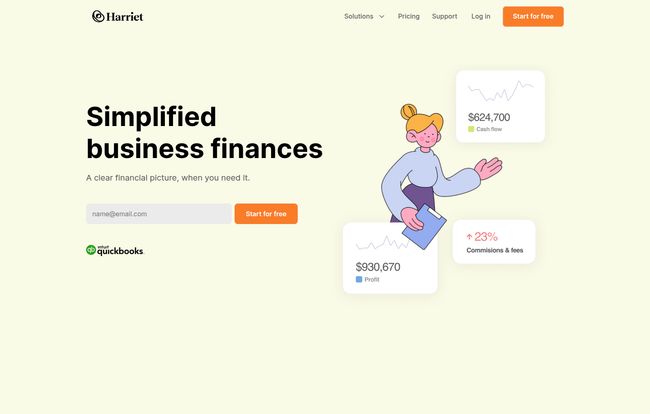
Visit Harriet
A Look Inside the Dashboard and Core Features
The heart of Harriet is its all-in-one financial dashboard. The moment you log in, you're not assaulted by a million confusing menus. Instead, the images I've seen show a clean interface with your key metrics front and center: Profit, Commissions & Fees, and other vital signs of your business. It’s designed to be understood at a glance.
Let's break down what it actually does:
- All-In-One Financial Dashboard: This is your mission control. It pulls everything together to give you that high-level overview. You can see your cash flow, track expenses, and monitor your overall financial health without needing a degree in accounting. It's about getting answers, not just data.
- Expense Monitoring: You know that moment of dread when you see a surprise subscription charge hit your account? Harriet aims to eliminate that. By keeping an eye on your expenses, you can spot trends, cut unnecessary costs, and just generally have a much better handle on where your money is going. It’s amazing how much “subscription creep” can eat into your profits.
- Cash Flow Insights: Cash flow is the lifeblood of a small business. A business can be profitable on paper and still go under because of poor cash flow. Harriet gives you insights into the money moving in and out, helping you make better decisions about when to hire, when to invest in new gear, or when to maybe hold off on that fancy new espresso machine for the office.
These features, especially when combined, work to pull you out of the weeds and give you a 30,000-foot view of your financial landscape. And honestly who has time to build that view manually every week.
The Human Touch: A Dedicated Bookkeeper
This, for me, is the game-changer. A lot of platforms give you the tools, but Harriet gives you the talent, too. On their paid plans, you get a dedicated bookkeeper. This isn't a random person from a call center; it's one person who gets to know you and your business. They're the ones doing the heavy lifting in the background—the categorizing, the reconciling—all the tedious stuff that makes most entrepreneurs want to tear their hair out.
Why is this so important? Because it builds trust and context. A dedicated bookkeeper understands the seasonality of your business. They know that a big expense in May is for your annual conference, not a random splurge. This is something that pure software just can’t replicate. It's the difference between a tool and a partner.
Let's Talk Money: A Breakdown of Harriet's Pricing
Ah, pricing. The part of every review everyone scrolls to first. One of my biggest pet peeves is when companies hide their pricing behind a “Contact Us for a Demo” wall. I was pleased to see Harriet has a straightforward pricing page. And the model they use is a flat-fee structure, which I've always been a huge advocate for. It means predictable costs for you, no surprise bills based on hourly rates.
| Plan | Price | Key Features |
|---|---|---|
| Starter | Free | Business health dashboard, expense monitoring, cash flow insights, subscription management. |
| Complete | $325 / month | Everything in Starter + Monthly bookkeeping and a dedicated bookkeeper. |
| Growth | $395 / month | Everything in Complete + Weekly bookkeeping for more hands-on management. |
The Free Starter plan is pretty generous. It gives you the dashboard and insights without any cost or commitment. This is a fantastic way to kick the tires and see if the platform's workflow vibes with you. For businesses just starting out, this could be incredibly helpful.
The Complete plan at $325/month is their core offering. This gets you the dedicated bookkeeper and monthly service, which is perfect for most service-based businesses or smaller e-commerce shops. The Growth plan at $395/month just ups the frequency to weekly bookkeeping, which is better for businesses with higher transaction volumes who need a more constant pulse on their finances.
The Big Caveat: It's All About QuickBooks
Okay, let's address the elephant in the room. Harriet is built to work with QuickBooks. This is either a fantastic feature or a potential deal-breaker, depending entirely on your current setup.
If your business already runs on QuickBooks, then integration should be a breeze. It's a smart move on Harriet's part, as QuickBooks is the dominant player in the small business accounting space. They're not trying to reinvent the general ledger; they're building a smarter, more user-friendly layer on top of it.
However, if you're a die-hard fan of Xero, FreshBooks, or some other accounting software, you're out of luck for now. This is a significant limitation. Migrating your entire accounting history to a new platform is no small task, and for many, it just won't be worth the hassle. It's an honest limitation and one you need to be aware of before you get too excited.
Who Is Harriet Really For? And Who Should Pass?
After looking at everything, a clear picture emerges of the ideal Harriet customer.
You should definitely check out Harriet if:
- You're a solopreneur, freelancer, or small business owner who is overwhelmed by bookkeeping.
- You already use QuickBooks Online or are willing to switch to it.
- You value simplicity and a clear, actionable financial dashboard.
- You love the idea of a predictable, flat monthly fee for bookkeeping services.
- You want the support of a real human, not just software.
You might want to look elsewhere if:
- Your business has incredibly complex accounting needs (e.g., multinational transactions, complex inventory).
- You have a dedicated in-house accounting team already.
- You are happily and deeply entrenched in another accounting software ecosystem like Xero or Wave and have no plans to leave.
My Final Verdict
So, where do I land on Harriet? I'm genuinely optimistic. It’s not trying to be everything to everyone, which is a mistake I see a lot of tech companies make. It’s a focused solution for a very common, very acute pain point. They’ve identified that entrepreneurs don't want to be accountants; they want to be business owners.
By combining a clean, intuitive platform with a human-powered service and a transparent pricing model, Harriet has put together a very compelling package. The QuickBooks limitation is real, but for the huge number of businesses already on that platform, Harriet offers a path out of the financial fog. If you're tired of dreading tax season and want to finally feel in control of your numbers, I think giving their free Starter plan a try is a no-brainer.
Frequently Asked Questions
- Which accounting software is Harriet compatible with?
- Harriet is exclusively compatible with QuickBooks Online. This integration is central to how their service works, so you'll need a QuickBooks account to use their bookkeeping services.
- What if I don't have a bookkeeper?
- That's exactly what Harriet is for! On their paid plans (Complete and Growth), they provide you with a dedicated bookkeeper who handles all the professional bookkeeping tasks for your business.
- What is QuickBooks and why do I need it?
- QuickBooks is one of the most popular accounting software platforms for small businesses. It serves as the official record-keeping system for your finances. Harriet connects to it to perform the bookkeeping and provide you with insights on its dashboard.
- What if my books are a mess or not up to date?
- This is a common situation. Most bookkeeping services, likely including Harriet, offer catch-up or cleanup bookkeeping as a separate service to get your books in order before starting with their monthly plan. You'd likely need to contact them for a specific quote on this.
- Is the dedicated bookkeeper a real person?
- Yes, absolutely. The value proposition of Harriet's paid plans is that you are assigned a real, human bookkeeper who will manage your books and be a consistent point of contact for your business's finances.
- Can Harriet handle payroll?
- The provided information focuses on bookkeeping, expense monitoring, and cash flow. While they integrate with QuickBooks, which has payroll features, you would need to clarify with Harriet directly if payroll management is part of their service or if they simply work with the data from your payroll provider.
